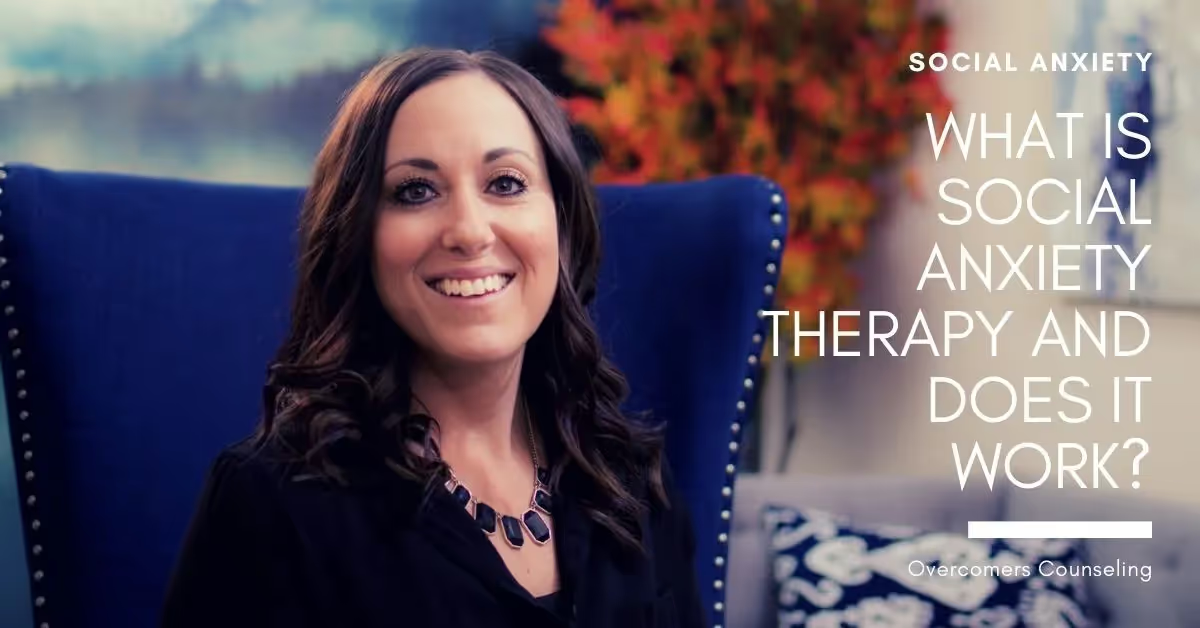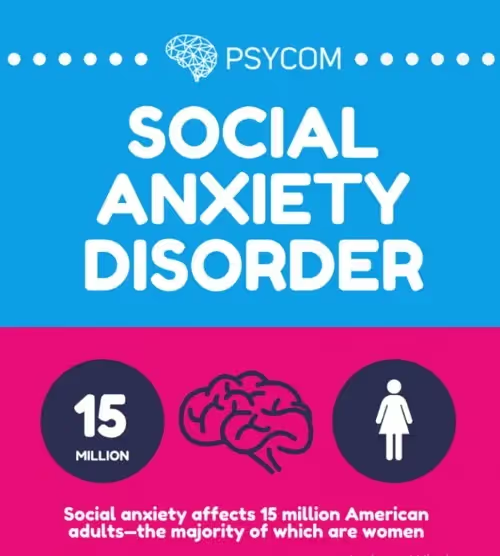Have you ever questioned if there was any truth to social anxiety therapy and does it work?Social anxiety therapy typically falls into one of two camps:...

Have you ever questioned if there was any truth to social anxiety therapy and does it work?
Social anxiety therapy typically falls into one of two camps: talk therapy and medication. Both have been shown to be effective in the treatment of social anxiety disorder, and in some cases, patients may undergo both forms of treatment simultaneously to receive optimal results.
Given the complex nature of social anxiety disorder and its causes, the appropriate treatment for each case will vary from patient to patient, so it is crucial that those who struggle with social anxiety disorder seek out the guidance of a trained professional who can point them in the right direction.
"I wondered how many people there were in the world who suffered, and continued to suffer, because they could not break out from their own web of shyness and reserve, and in their blindness and folly built up a great distorted wall in front of them that hid the truth." Daphne du Maurier
Talk therapy involves speaking with a trained professional about your condition. Talk therapy typically involves different treatment modalities, such as Cognitive Behavioral Therapy or Exposure Therapy. A full course of therapy typically lasts anywhere from 12 to 16 sessions, although the length of treatment may be extended depending on the severity of an individual's condition.
With talk therapy, trained professionals help those who struggle with social anxiety disorder to reframe and reassess the negative thought patterns that hold them prisoner.
Anxiety disorders are fueled by negative, catastrophizing thoughts, and by challenging these thoughts when they occur, patients begin to rewire their brains to view previously threatening stimuli (such as a fear of social situations) as harmless.
Additionally, Exposure Therapy helps patients get comfortable with uncomfortable situations by gradually exposing them to their fears, little by little. While this form of treatment is highly effective in the negative stimulus at once can have the opposite effect and reinforce an individual's anxiety.
"When all by myself, I can think of all kinds of clever remarks, quick comebacks to what no one said, and flashes of witty sociability with nobody. But all of this vanishes when I face someone in the flesh: I lose my intelligence, I can no longer speak, and after half an hour I just feel tired. Talking to people makes me feel like sleeping. Only my ghostly and imaginary friends, only the conversations I have in my dreams, are genuinely real and substantial." Fernando Pessoa
Although medication is still viewed with skepticism and fear by many, studies have overwhelmingly shown that modern medical therapies for anxiety disorders are both safe and effective. Antidepressant drugs, despite their name, are often the first line of pharmacological therapy for anxiety disorders, and for patients who struggle with both anxiety and depression, they may be an ideal choice of treatment.
While no medication is free of side effects, many patients who begin a course of antidepressants in order to treat their anxiety find that whatever benefits they receive from medication greatly outweigh the negatives.
Not all medication may be appropriate for you, they must be taken only as directed under the supervision of a doctor.
Roughly cognitive behavioral therapy. Studies show 85% of participants drastically improve or recover with cognitive behavioral therapy.
If you need help, please call (719) 345-2424.

Source: Psycom
Five common signs of bipolar disorder include dramatic shifts in mood, energy, and activity levels. This often shows up as episodes of mania—high energy, excitement, or irritability—and episodes of depression marked by sadness or hopelessness. Other signs may include disrupted sleep, racing thoughts, and impulsive or risky decisions. If these sound familiar, Overcomers Counseling can help you sort through the noise and find clarity.
There isn’t one single cause of bipolar disorder—it’s usually a blend of genetics, brain chemistry, and life experiences like stress or trauma. Think of it as a complex puzzle with several interconnected pieces. When you’re ready to make sense of those pieces, Overcomers Counseling is here to help you put the picture together.
Living with bipolar disorder can feel like riding a roller coaster you didn’t exactly sign up for—episodes of deep depression on one end and bursts of high energy or euphoria on the other. Everyone’s experience looks a little different, and at Overcomers Counseling, we recognize that your story deserves to be understood on its own terms.
Absolutely. Bipolar disorder may be a lifelong companion, but with consistent treatment and support—like the kind offered at Overcomers Counseling—you can build a life that feels steady, healthy, and genuinely yours. Think of it like learning to drive on a windy mountain road: tricky at first, but totally manageable with the right guidance.
Supporting someone with bipolar disorder starts with compassion, patience, and a solid understanding of what they’re navigating. Offer steady emotional support, encourage them to stay connected to treatment, and avoid taking their symptoms personally. And remember, caring for yourself matters too. Overcomers Counseling can help guide both you and your loved one through these ups and downs.